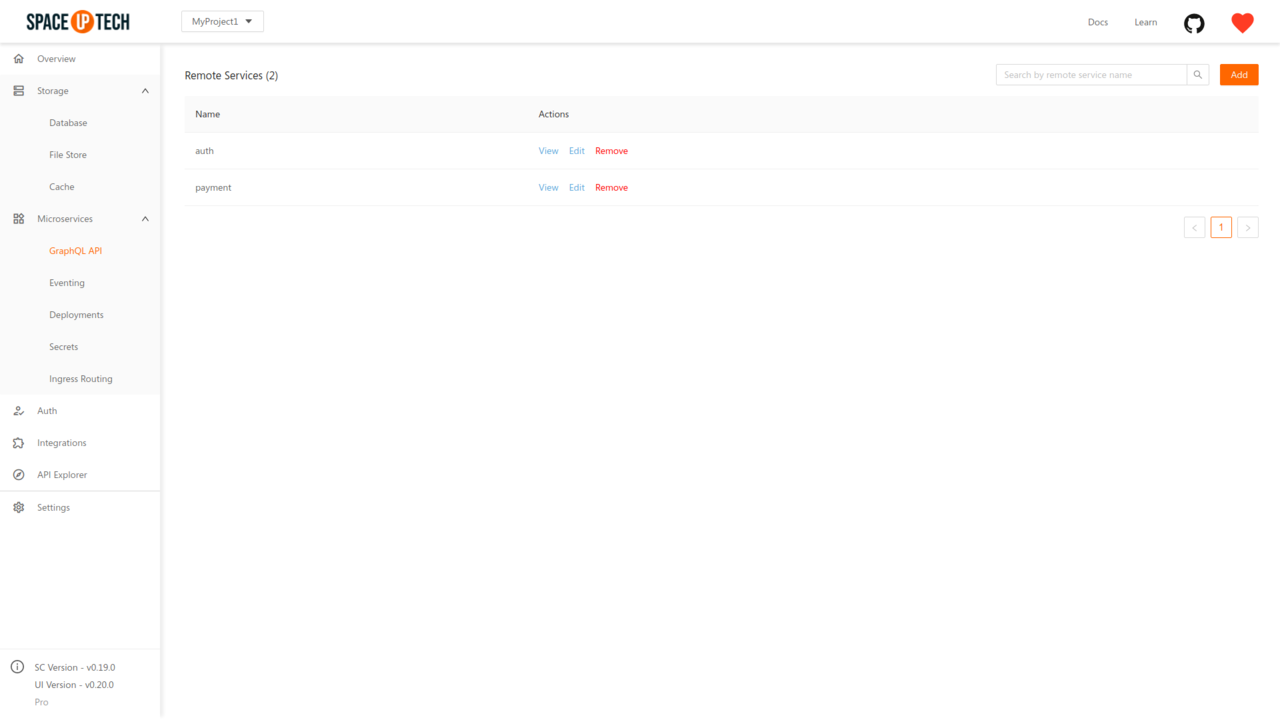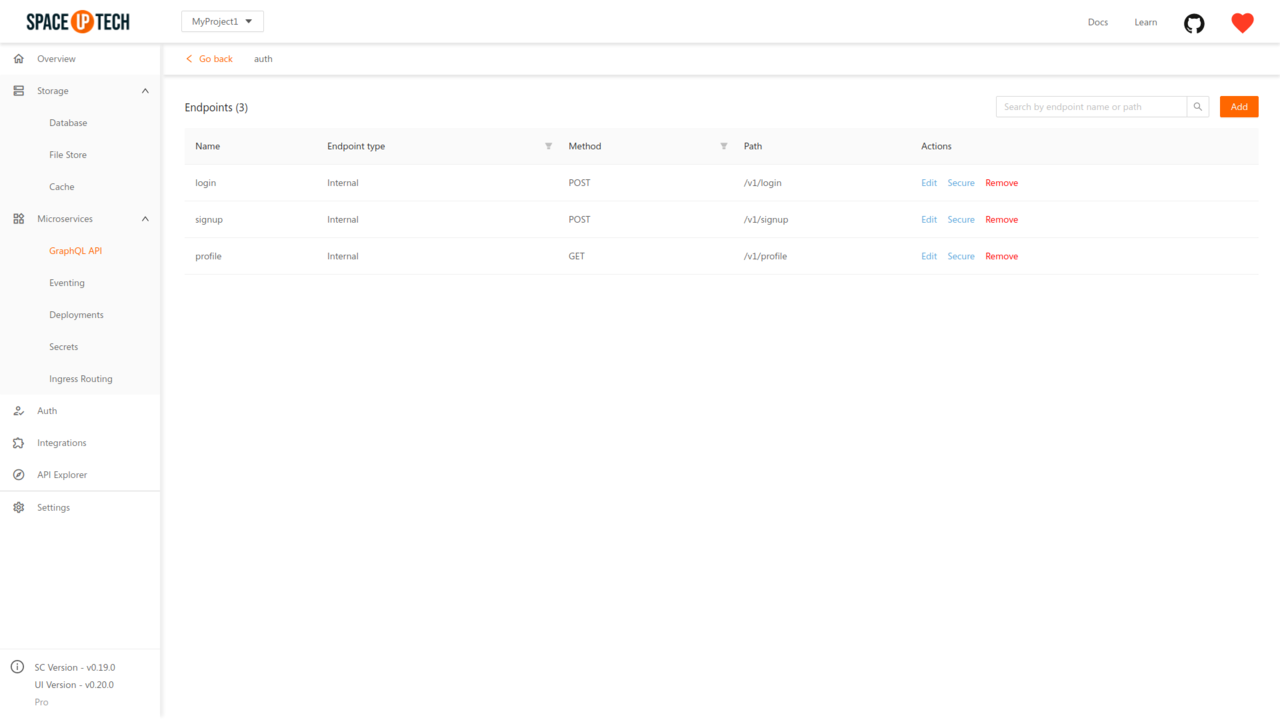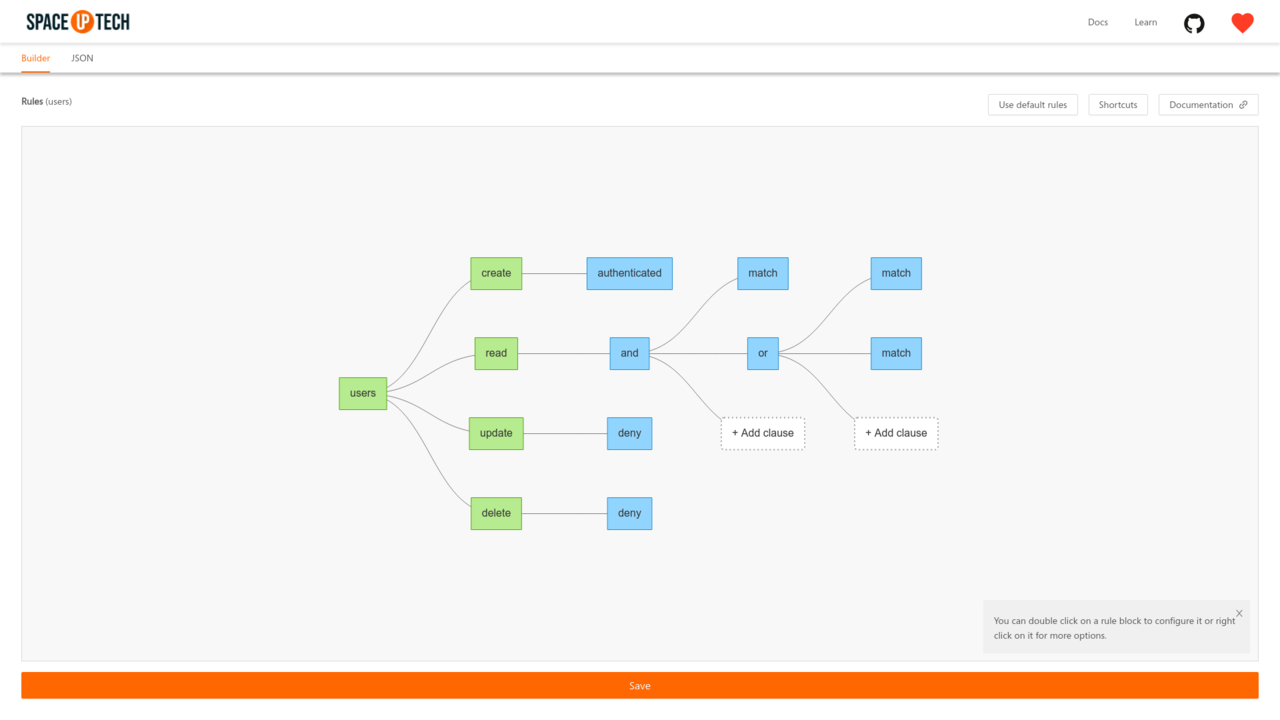
You can easily configure the access control logic of your remote services with Space Cloud’s security rules. The security rules for remote services work on the endpoint level. This means you can have different rules for different endpoints in each remote service.
Here’s a sample snippet which shows the security rules to access the endpoint endpoint1 of service service1.
{
"rule": "allow"
}You can add rules for each endpoint under each service. A request to an endpoint is denied if there is no corresponding rule for it. This ensures that all calls to remote services are secure by default.
Space Cloud’s security rules are flexible enough to enforce any access control logic including querying your databases, validating conditions and masking private data. Check out the documentation of security rules to learn more.
Head over to the GraphQL API section of the Mission Control.

Click the View action of the required remote service.
You will be directed to a page which will show all the endpoints of that remote service:

Click the Secure action next to any of the endpoint that you wish to secure.
This will open a Rule Builder UI to configure the rules easily:

The rule editor also comes packed with a few shortcuts to make you feel productive.
If you are more comfortable with JSON, you can switch to the JSON editor as well by clicking on the JSON tab.
The API Explorer of Mission Control comes packed with a token builder as well to make testing your security rules for different JWT claims a breeze!
Following are the variables available in the security rules of a remote service call:
| Variable | Data type | Description |
|---|---|---|
args.auth |
Object | Object containing the JWT claims present in the token. |
args.params |
Object | Object containing the params/arguments provided while calling the remote service. |
args.token |
String | Raw token present under the Authorization header in the request. (with the Bearer prefix removed) |